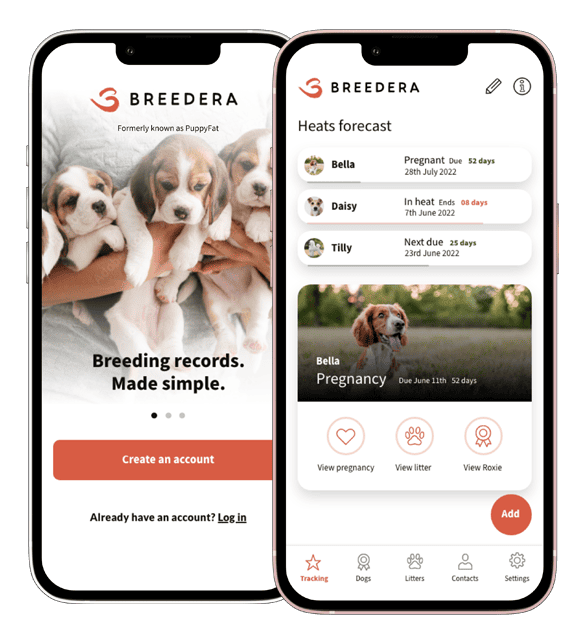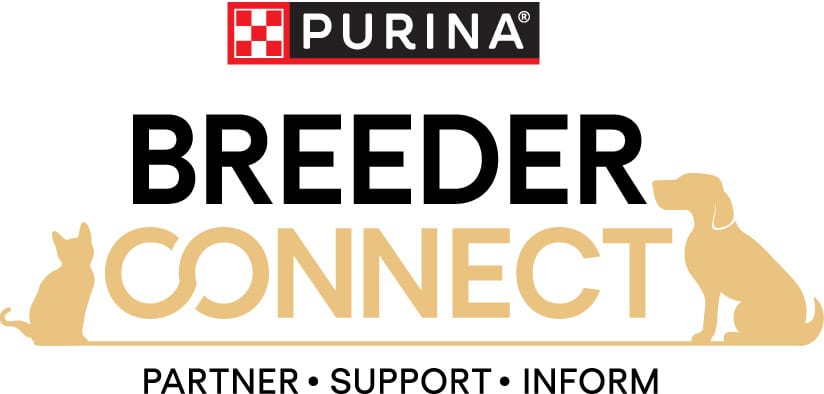In this article
Council-licensed dog breeders often face a lot of common misconceptions about what they do.
Over the last five years, we’ve got to know a lot of different breeders from across the world, including many council-licensed dog breeders.
After hundreds of Zoom calls, Facebook chats and conversations with breeders, we know that many of the assumptions about this community are completely false.
In this article, we aim to dispel some of these myths, shedding light on the reality of responsible breeding practices.
Myth 1: Licensed breeders are puppy farmers who have lots of litters.
Being a licensed breeder does not automatically make you a puppy farmer. The term “puppy farmer” typically refers to individuals or establishments that prioritise profit over the welfare of animals. However, we know that council-licensed breeders undergo inspections, adhere to strict regulations, keep detailed dog records, and continuously strive to prioritise the health and wellbeing of their dogs. Council licensing helps identify breeders who uphold high standards of care.
Myth 2: You don’t need a licence if you breed less than three litters a year.
The interpretation and enforcement of licensing laws vary from council to council in the UK, but in many cases, breeders must obtain a licence regardless of the number of litters they have.

Myth 3: Getting a licence is easy and means nothing.
Acquiring a licence as a dog breeder involves a comprehensive process, which includes a lot more than just “paying a fee”. Breeders frequently undergo rigorous inspections to ensure they meet the necessary standards for facilities, animal welfare and breeding practices. The licensing process serves as a safeguard to protect the wellbeing of the dogs and puppies involved.
Keeping detailed records of breeding dogs and puppies is essential not only to meet the licensing criteria but also to monitor their dog’s health and welfare.
In fact, many breeder homes are filled with boxes of files and mountains of paperwork to track things like weights, feeds, diets, treatments, temperatures, vaccinations, heat cycles, pregnancies, matings, health certificates and much more.
That’s why, after conversations with 1000s of breeders, we designed Breedera to help responsible breeders keep all their essential records in one place, in the palm of their hands.

Myth 4: Licensed breeders have loads of dogs kept in kennel environments.
Contrary to popular belief, licensed breeders are not characterised by overcrowded kennels. Licensed breeders are required to socialise and ensure that their dogs are raised in loving, home environments. These breeders focus on the health, temperament, and overall wellbeing of their dogs.

Myth 5: Licensed breeders do not prioritise genetic testing and health screening.
Responsible licensed breeders understand the importance of maintaining the breed’s health and temperament. The law says breeders must demonstrate they’re not knowingly breeding dogs that are unfit to breed, so licensed breeders conduct genetic tests and health screenings on their breeding dogs to ensure the offspring are healthy and free from genetic disorders.
This commitment to thorough testing contributes to the overall wellbeing of the breed.
Conclusion
Council-licensed dog breeders play a vital role in maintaining the health, temperament, and integrity of specific dog breeds. Dispelling the myths surrounding these breeders helps to create a more accurate understanding of their practices. By debunking misconceptions, we can appreciate the dedication, care, and ethical breeding practices exhibited by responsible licensed breeders.
Ultimately, it is crucial to support breeders who prioritise the welfare and wellbeing of their dogs, ensuring a bright future for the breeds we love.

With special thanks to the Council Licensed Breeders community for sharing their thoughts and experiences for this article and to Jozefa Plesnarowicz Lawrence for the photographs.
Disclaimer:
*The information provided in this article is for general informational purposes only and is not intended to be a substitute for professional veterinary advice, diagnosis, or treatment. The content shared here is based on thorough research, personal experiences and the collective knowledge of the dog breeding community.
While we strive to offer accurate and up-to-date information, the field of veterinary medicine is constantly evolving, and individual cases may vary. Always seek the advice of a qualified veterinarian with any questions you may have regarding your dog’s health or well-being.














By PuppyFat